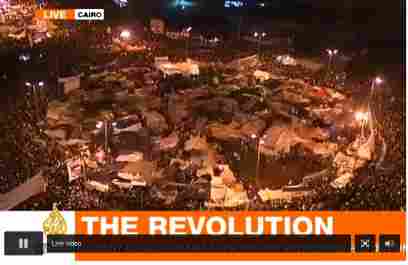By Michael Collins

(Washington, DC) Two critical forces behind the Egyptian Revolution are missing from the front pages, or any pages, of the corporate media. They are the critical role of Egypt's union movement and the universal desire of all people to live in peace, freedom and dignity. Rarely mentioned are the grievances of Egypt's workers and their struggle to unionize. As a result, we've missed the connection between the struggle to unionize and the right to assemble.
The Egyptian people were poised for a mass celebration following what was supposed to be a farewell speech by former President Hosni Mubarak. For seventeen days, Egyptians massed in Cairo's Tahrir Square. There were protests in Alexandria, Port Suez, and other cities. The G-20 sates have been tentative in their support for the full set of demands by protesters and the broader Egyptian public. For example, President Barack Obama said Mubarak needed a, "credible, concrete and unequivocal path to democracy." What does a "path to democracy" look like? How long does it take to walk the path? Egypt's military leaders may have acted already.
Plus an extended comment on Iran's demonstrations
Recent comments